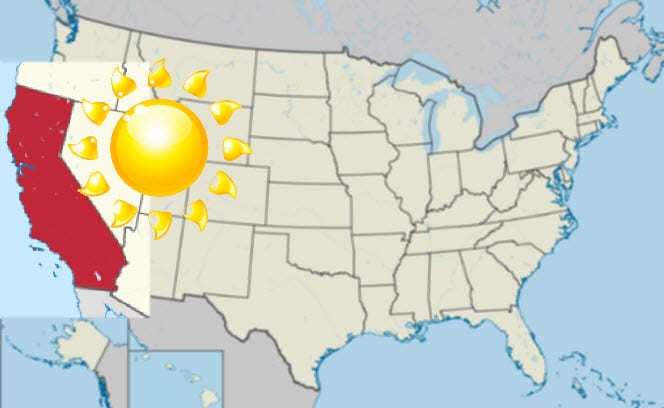California regulators mull rules concerning solar energy in the state
October 14, 2015Regulators are in discussions to determine what should be done with the state’s energy rules
Utility regulators in California are working on ways to bring some balance to the growing solar energy industry. This form of renewable power has seen a surge in popularity throughout the state, with many homeowners looking to purchase and install rooftop solar panels and reduce their reliance on the state’s utilities. At the heart of the issue is net metering, which measures the amount of money rooftop solar energy systems potentially collect when compared to conventional retail electricity.
Utilities want to see the state’s regulations changed
Utilities tend to want to offer homeowners with their own solar energy systems electrical power at the wholesale rate. The problem, however, is that homeowners will continue to rely on an existing energy grid, which can be costly to maintain. This is because the sun is not always shining, meaning that solar energy systems are not always producing electrical power. Some of the state’s largest utilities want to see the net metering rules changed, which could have a major impact on the financial aspects of solar energy.
Current regulations may no longer be in the best benefit of the state
 California’s current net metering rules were established over a decade ago. Other regulations supporting solar power were set up to encourage the adoption of this form of renewable energy. When it comes to net metering, the rules are meant to expire when solar penetration reached 5% from any of the state’s three investor-owned utilities. These companies are approaching this level of penetration and want to see the regulatory structure of the state change in regards to solar power.
California’s current net metering rules were established over a decade ago. Other regulations supporting solar power were set up to encourage the adoption of this form of renewable energy. When it comes to net metering, the rules are meant to expire when solar penetration reached 5% from any of the state’s three investor-owned utilities. These companies are approaching this level of penetration and want to see the regulatory structure of the state change in regards to solar power.
Utility proposes that consumers with solar energy systems should be charged a demand fee
PG&E Corp., one of the state’s larger utilities, has proposed that those adopting solar energy systems should pay a demand charge based on how much they use the established energy grid. This fee would help cover part of the cost of the distribution system that these homeowners are relying upon. Utilities also note that the solar sector may no longer require any degree of financial support from the government, as the cost of this form of energy has fallen considerably.

 With over 15 years of reporting hydrogen news, we are your premier source for the latest updates and insights in hydrogen and renewable energy.
With over 15 years of reporting hydrogen news, we are your premier source for the latest updates and insights in hydrogen and renewable energy.
As is usually the case with innovative public policy, California is leading the way with reforming -utilities integrate PV solar into its existing price structure.